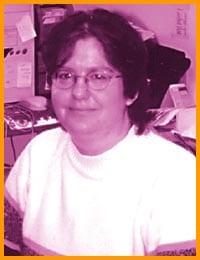Nola Etkin is clear about her reasons for moving to Canada’s smallest province.
“Job,” she says, “job.”
In 1997, Etkin was offered a position teaching chemistry at the University Of Prince Edward Island. Born and raised in Montreal, having lived in big cities like Ottawa and Edmonton, Etkin says she had fears as she uprooted her partner, her kitties and her whole life.
“I was a little bit concerned about coming to such a small place,” she says of her current home in Mermaid, PEI. Etkin says the fact that Brenda, her partner of 12 years, was coming with her made the decision easier. “I think moving here alone would have been much more intimidating.
“When we came there was a phone number in the book for gays and lesbians. We called and it was disconnected.”
PEI has a population of just 136,000.
Etkin, 34, started looking for a way to be active in the community, attending the first meeting of the newly formed Gay And Lesbian Coalition, which was organizing around the lack of human rights protection in the province.
Two years ago, Etkin and two other members of the coalition (successfully) asked a legislative committee to add “sexual orientation” to the province’s human rights code.
“A big part of the reason I was in the group that presented is that I’m not from here,” says Etkin. “I’m not from here and I have job security. I felt very safe.” Only one of the three presenters was an island native.
“He was very courageous,” says Etkin. “It can be very intimidating.”
The quest for human rights was a big story in local papers at the time. “There was exposure to both our points of view and the hateful point of view,” says Etkin, citing groups such as REAL Women for opposing the change.
But Etkin says that since the legislation was introduced, homos in PEI “feel safer.”
“There are more employers offering same-sex benefits,” she adds. “I think that’s directly a result of us having human rights.”
Etkin’s activism began in graduate school at the University Of Edmonton in the mid-1980s. She says queers on campus were just making their presence felt when she came along.
“Those were interesting times to be there.” Etkin says. Although she’d been out to herself for a long time, Edmonton was when she started coming out to others. It’s also where she met Brenda. “At the time I was coming out, I was also coming out in the political realm.”
Last December, Etkin was elected co-chair of the PEI coalition – newly renamed the Abegweit Rainbow Collective. She says the name was changed to be more inclusive – “Abegweit” is the original Mi’kmaq name for the island, and means “cradled on the waves.” Meetings are held at the offices of AIDS PEI.
One of ARC’s main projects is a telephone support line, which started up in November. As well, Etkin says the group has a more social element now (it’s held a dance, for example).
As for Etkin herself, she wiles away her little free time in watching the sci-fi TV series Babylon 5 at home with Brenda and their two cats.
“Funnily enough,” she says, “Brenda and I have found that we had an easier time making friends here than did my straight colleagues, because we fit into a specific community that was very welcoming and open to newcomers.
“It was a little bit disconcerting at first, since I’ve always lived in big cities,” she says. “We found that it’s a really nice place to live. There’s a real close knit community, and I’m really enjoying life here.”

 Why you can trust Xtra
Why you can trust Xtra


